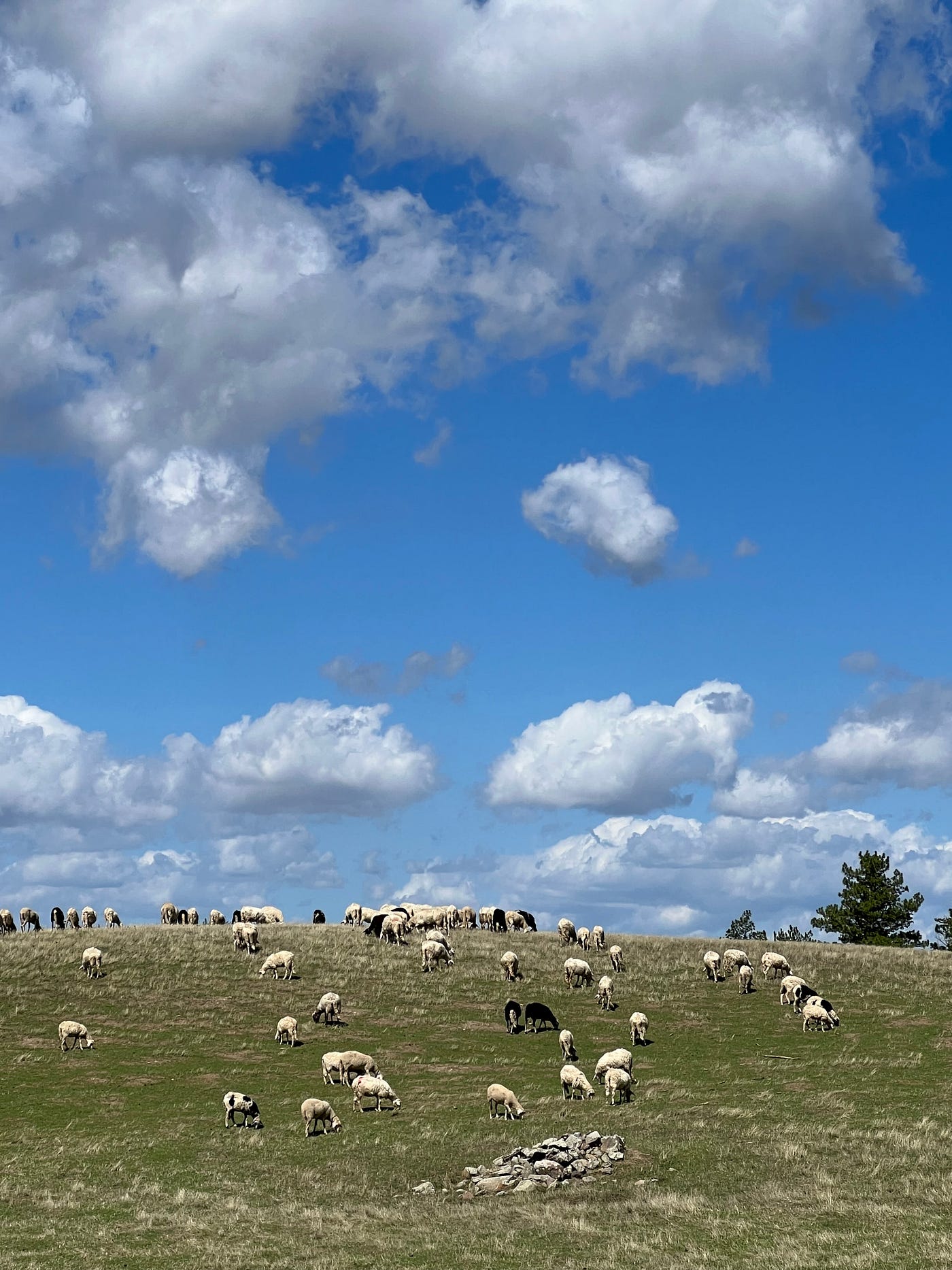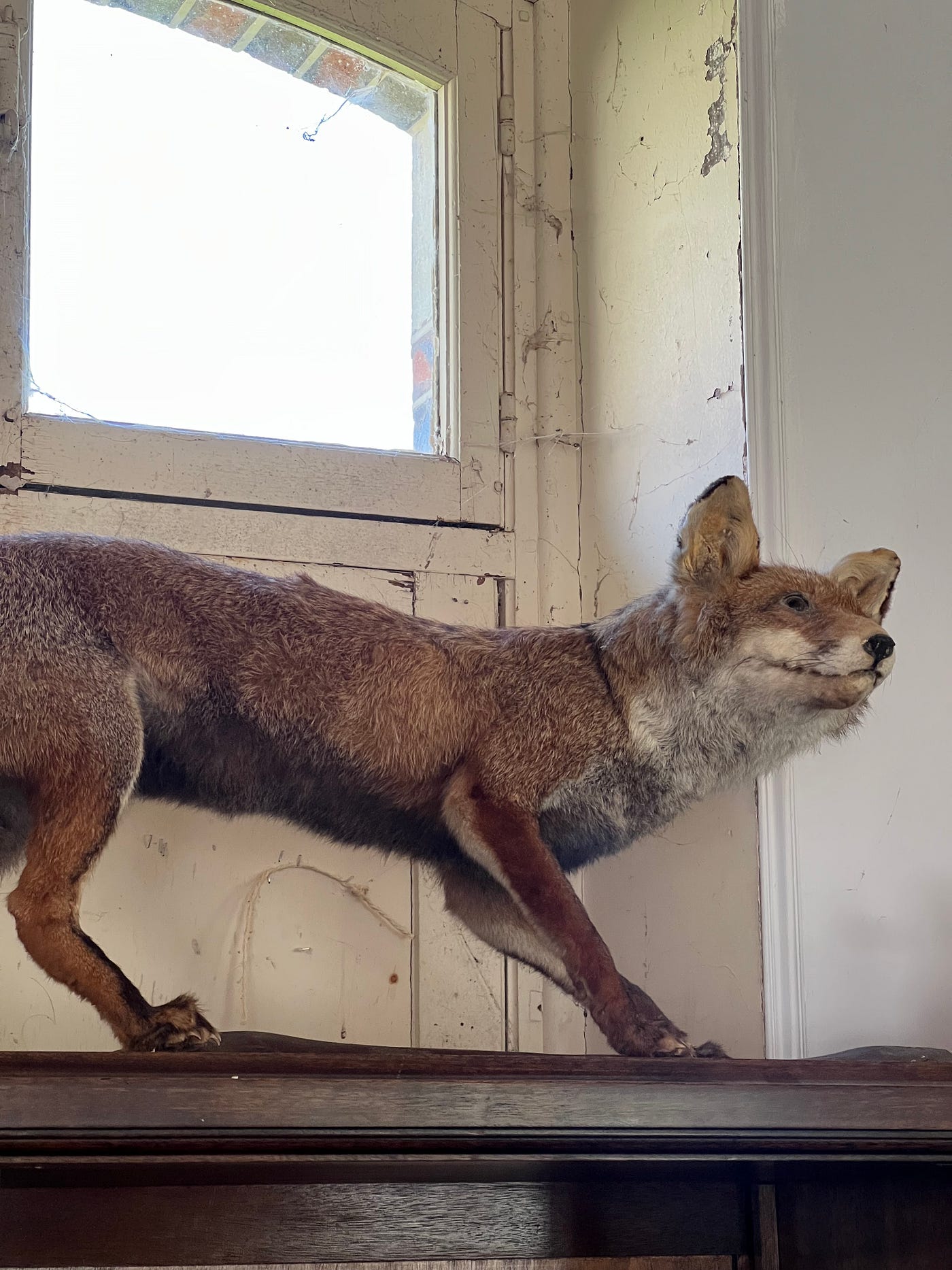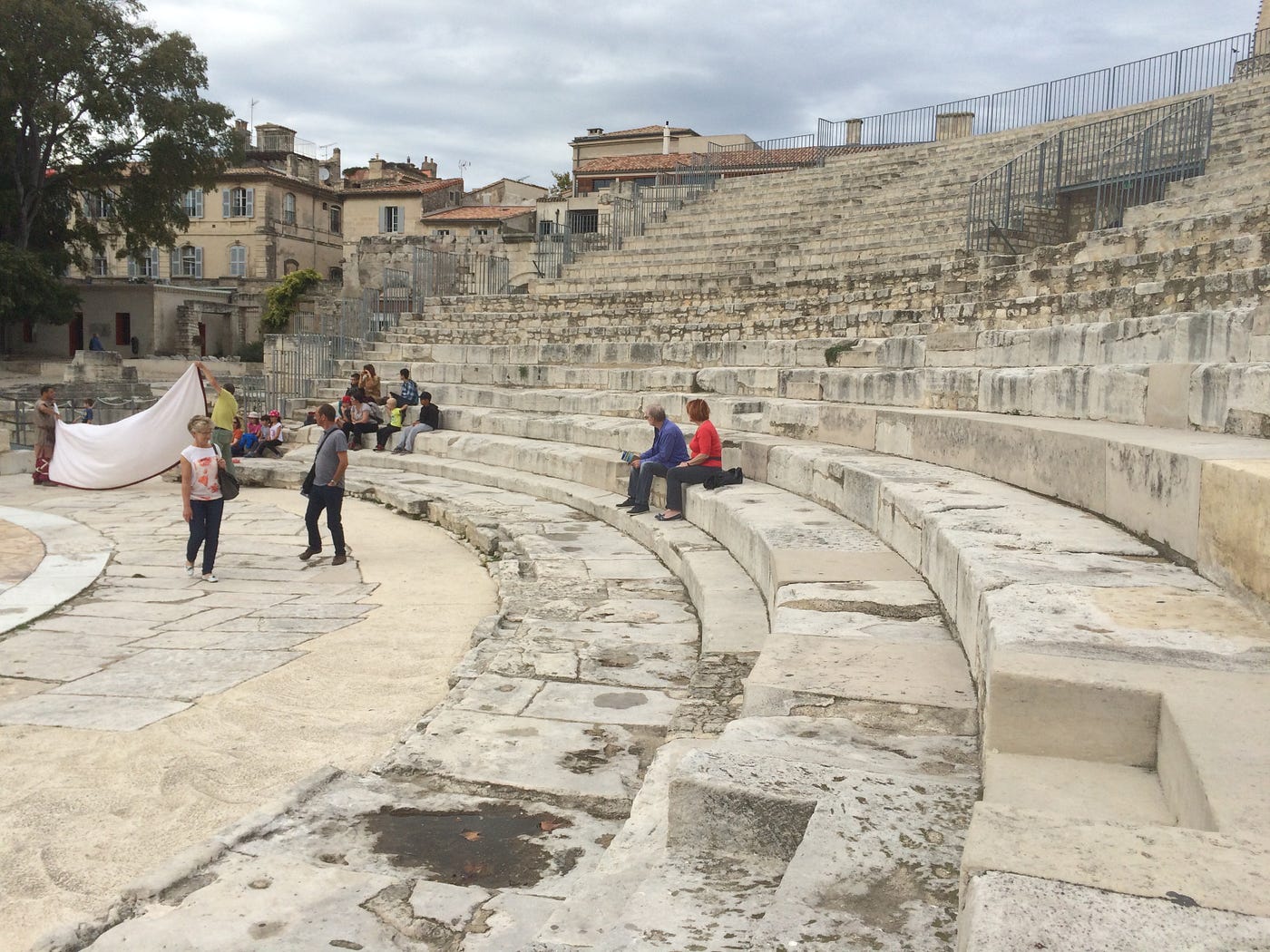Sermon: Are We the Wolf?
Published by Ronald Steed,
YALE UNIVERSITY | RACISM | WHITE SUPREMACY
Good Shepards, Hired Hands, Flocks, and Wolves…¹

We think of ourselves as part of a flock… what if we are the wolves though? | Photo by Ron Steed
Saturday a week ago, eight of us from St Andrew’s went on a pilgrimage to Yale University, to explore the Yale & Slavery Research Project. This project, begun in 2020, just finished in February. It examines the role that Yale University played, in slavery, and after the Civil War in ways that continued to hold Black and Brown people at a distance, and resisted enfolding them into the university. There is a book titled Yale and Slavery: A History, which you can download for free.
We learned a lot, and much of it was a surprise; it was certainly new information to me. And here I want to acknowledge that mine was a typically white response to information like this; surprise and disappointment. To black people in New Haven and at Yale… everywhere really, I’m confident that NONE of this is a surprise; "This is America".
All of us are so grateful to those who organized the whole day for us, and maximized the experience in every possible way. We ended the day reciting the over 200 names of enslaved people who the project was able to identify. Thank you!
When we feel uncomfortable…
Today’s gospel from John² is one of the most thought-provoking stories in the lectionary. Jesus proclaims himself as The Good Shepard, taking the danger onto himself. We have a hired hand, with mixed motivations. There is a flock of vulnerable sheep. And other flocks of other sheep will come alongside.
This story can be uncomfortable because a LOT of us are hired hands. I’m hired and so are many of you. We hired-ones tend to shift uncomfortably in our seats with this one. Another discomfort in the story is about who is in and who is out of the flock. A LOT of Christian anxiety centers on this issue, with some building pretty high fences around flock membership. A final discomfort, is just who those OTHER sheep are. This can worry some, because Jesus doesn’t actually say who they are. So a lot of theology gets unpacked just by looking hard at this story, and it can be very telling.
I wonder; how do YOU see yourself in this story? Do you imagine yourself as The Good Shepard? The Hired Hand, or maybe a hired hand trying to be more like a good Shepard? Maybe you see yourself as a sheep?
What if turns out that you are a wolf in this story? What if you are one who snatches and scatters? Let’s see if that might be possible for some of us.

One who snatches & scatters | Photo by Ron Steed
Jesus is a brown man, among brown people, living under Roman domination. The flock in the story are the poor of Judea, and the Hired Hands are the leaders of that nation, also brown, who collaborate with the Romans. You can see why the hearts of hired hands are not all-in for the sheep, because it is the wolf-nation, the Romans, that they really work for. In this chapter of John, Jesus is telling his story in the presence of some of those hired hands… they know who they are.
Closer to Rome than to Judea
If you are a white American as I am, living in a society, which Yale University has shown, is woven with the fabric of white supremacy from its founding to its present, we are a lot closer to the Romans, than we are to the oppressed farmers and sheep herders of Judea. White culture values things like reason, project management, business practices, ambition, and side-hustles. So did the Romans. Looking at our pilgrims with a critical-eye then, we were really eight wolves learning about how other wolves behaved in the past and in the present.
I don’t know about you, but that makes me really uncomfortable, because I have to wonder, as a wolf, if I am capable of doing the same things. Can I oppress people because it is in my economic interest to do so? And if I’m honest, I think the answer is yes. We tut-tutted about these Yale stories and I did as much as anyone. And… I’m a wolf… to snatch and scatter is wired into my DNA. And I think my Black and Brown neighbors are not under any illusions about this. Jesus makes no bones about where HE stands; he’s with the sheep. Is it possible then, that I might find myself fighting against Jesus Christ himself when I let my wolf DNA have its way?
I ran into this in my work as a hospital chaplain not long ago. As I was reviewing my practice there, I noticed that I was having real trouble going into the rooms of Black patients. It’s not that that I didn’t want to help them, it’s that, when I went in, I was REALLY aware of where I come from, and I wondered if they could detect that in me.

My family’s "origin story"… no mention of taking land or labor | Photo by David Steed
I grew up in a small farming community south of Atlanta, Ga and my family did what white families do in the South (here in the North too as it turns out); they carefully cultivated my behavior and attitudes toward Black and Brown people. Never overtly saying the quiet part out loud, but in all kinds of ways, it was abundantly clear where I stood in that society and where they stood. Now, I think I have broken free of that learning… I think I’m breaking free of that learning. But when I enter that room, do my Black patients detect something that I can’t see with my own eyes? That really worries me.
Some hard and hopeful truths…
Thanks be to GOD, I have a wonderful Black colleague who came to the rescue. "Yes!", she said, "of COURSE they know! How could they NOT? And it’s WORSE for you, because you are not just white, but you are really pasty white, and when you turn red, like you’re doing right NOW, everyone can see it! I really feel sorry for you, but that’s the way it is!"
There you go… and now I understand something new. No matter how hard I try, I will NEVER change my DNA from wolf to sheep. When I walk into that hospital room, Black people see a wolf at the door. They KNOW a wolf when they see it. So THEIR response is BEYOND my control. All I can do is try, and to try to learn by trying.
Now, I know that Easter is a time when we’re supposed to be uplifted and resurrected, not so much hung on the cross, and this sounds more like a Lent-y sermon, so what hope IS there for wolves? Because, today’s Gospel sure does not seem to make allowance for them!
For sheep, there is Jesus Christ who stands among the flock, and that has been the mainstay of the Black church experience since there WERE Black churches. For wolves, there is Isaiah 11… the Peaceable Kingdom. Do you remember that? "The wolf shall live with the lamb… They will not hurt or destroy on all my holy mountain; for the earth will be full of the knowledge of the Lord as the waters cover the sea."
So there’s hope for wolves AND for sheep; it’s just a different kind of hope for each. And there’s a really good book for your journey, not to change your DNA, but to help wolves and lambs enjoy pasture together; The Wolf Shall Dwell with the Lamb, by Eric Law. In it, Eric helps people, white and Black, navigate through issues of power. And POWER is what we are talking about here. White people are helped to become more aware of the power they wield, often unconsciously, and black people can become aware of the ways in which they use power in different, and wonderful ways… maybe even in communal ways that contribute a lot more to peace than the white ways of power.
Learnings
A big learning for me is, when I’m in multicultural gatherings, I come there as a wolf, and my instincts are to use power in the white way. I have to be more mindful then, and give that power away, or not take it up in the first place. It’s really hard for me… I’m used to having the mic and talking away, oblivious to the needs of others. But Eric is helping me to see that more clearly.
Another learning, and this one is hard for white people too, is to know that if I am going to DO this work, I must be ready to receive the anger of Black and Brown people… be ready to get it wrong, even when I think I’m doing it right… take my wounding with grace, then get back in there and do it again. I get caught in these rocks and shoals all the time. I’m probably getting it wrong in some way for someone right at this moment.
Christena Cleveland, a black author and scholar, guided a lot of us in Episcopal Church in Connecticut over the last year in a course called Decolonizing the Body of Christ. She taught that "Freedom is not a secret that you can get out of a book or a doctrine, it is a PRACTICE". We have to get into our bodies. We need to come at this with a sense of "perpetual apprenticeship… that we’re in the SHOP, doing and learning… we’re in the practice…" This is why, for me, PRACTICE in Christianity has primacy over "BELIEF". Wolves and sheep together in the same space is a practice and we wolves are apprentices in that practice.
Another practical thing you might try if you are white, is to read The Bible as though you are a Roman. See how that affects the reading and learning. Where does Roman power show up, AND what is your discomfort, when you are the one, about whom the flock is being warned?

Roman ruins in Arles, France | Photo by Ron Steed
Easter is a time when we dwell on the resurrection after focusing for a season on the cross. In a way, the cross and the resurrection are two paths to the same goal. Wolves take one path; sheep take another.
Eric sums it up this way:
"The Gospel invites the powerful to take up their cross and follow Jesus. Salvation for the powerful comes from the decision to give up power and take up the cross. The Gospel, however, never asks the powerless to choose the cross because the powerless, by their condition of powerlessness, are already on the cross. Because the powerless are already on the cross, salvation comes from… the hope of God’s deliverance through the resurrection."
May these divergent paths find their common end in a green and verdant pasture, where the wolf shall live with the lamb.
¹ This sermon was delivered at St. Andrew’s Episcopal Church, Madison, CT, on the fourth Sunday of Easter, April 21, 2024
²John 10:11–18 (NRSV)
Jesus said, "I am the good shepherd. The good shepherd lays down his life for the sheep. The hired hand, who is not the shepherd and does not own the sheep, sees the wolf coming and leaves the sheep and runs away — and the wolf snatches them and scatters them. The hired hand runs away because a hired hand does not care for the sheep. I am the good shepherd. I know my own and my own know me, just as the Father knows me and I know the Father. And I lay down my life for the sheep. I have other sheep that do not belong to this fold. I must bring them also, and they will listen to my voice. So there will be one flock, one shepherd. For this reason the Father loves me, because I lay down my life in order to take it up again. No one takes it from me, but I lay it down of my own accord. I have power to lay it down, and I have power to take it up again. I have received this command from my Father."